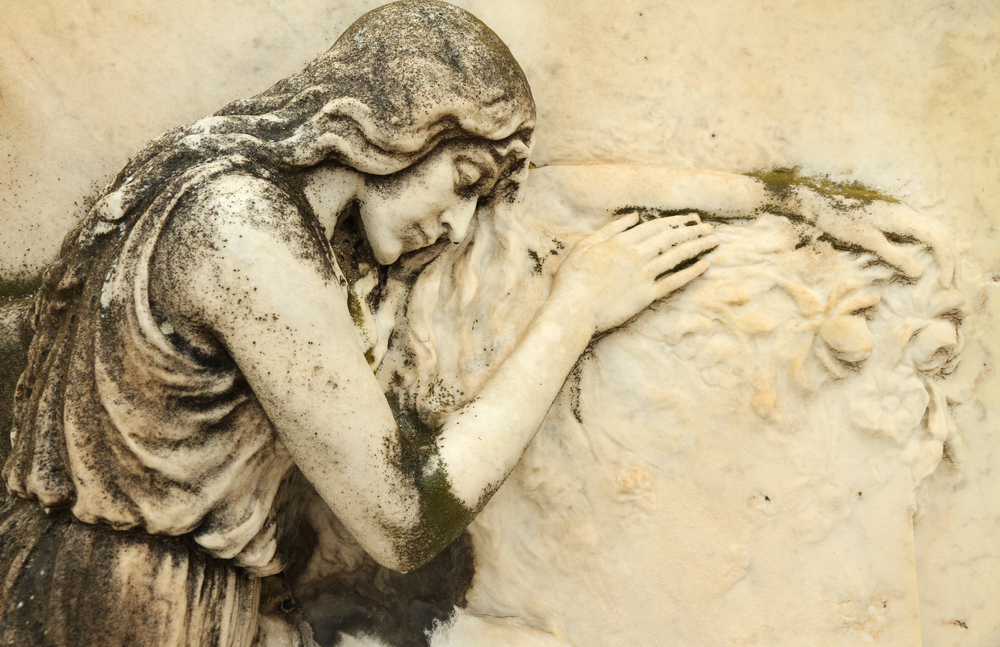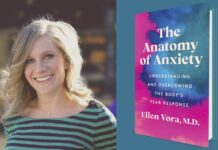A new article published in Sociology of Health & Illness explores the consequences of medicalizing grief. The current work, led by Sarah Gurley-Green from the University of Massachusetts, argues that the inclusion of “prolonged grief disorder” (PGD) in the Diagnostic and Statistical Manual of Mental Disorders (DSM-5) has set a research agenda that prioritizes a biomedical understanding of grief. Treating grief as a pathology that can be “cured” with some “magic bullet” can expose people needlessly to the risks associated with drugs and other treatments.
Additionally, the creation of a grief disorder can change how people understand and navigate their own grief. This threatens to turn grief from a healing process that allows people to mourn their losses to a pathology denoting a diseased brain.
The authors argue for an eco-psychosocial approach to grief. This approach could involve connecting the bereaved with a compassionate community, restructuring cities to create more community areas, and making policy changes to recognize bereavement as a public health priority.
The authors write:
“Not surprisingly, there has been a push to identify biomarkers and to use neuroimaging to identify the neurobiological basis of PGD. Some researchers have even suggested that PGD is a ‘reward circuit disorder’ akin to addiction and that naltrexone, an opioid antagonist, may be a promising treatment. The purpose of this paper is to show how medicalizing grief reinforces a research agenda dedicated to the search for pharmaceutical and psychological ‘magic bullets.’ Following George and Whitehouse (2021), we propose that an eco-psychosocial approach—one that incorporates environmental and contextual factors—is needed.”
















This is yet again an unnecessary research study. The same argument can be easily made for most “disorders “ listed in the utterly UNSCIENTIFIC, and overly proven as invalid, DSM. Who are these authors talking to? Psychiatry has long held a political power in this country not matched in most other countries. But just as major corporations have done, they have also been able to expand their bogus claims far beyond. We need to really call out this pseudo-scientific field at all times possible, not only because of the prolonged and often time damaging side-effects of psychotropic medications but also because of the huge money-making apparatus it happens to be. Thank you. ELOP.
Report comment
Pathologizing Grief would make it easier to stigmatize and hush the bereaved who don’t remain silent about the imbalance of power that allows licensed professionals to perpetuate human rights abuses, harm, and suffering which commonly result in premature death. Loved ones feel abandoned when they become trapped in the ratchet-like coercive, exploitative, medically neglectful, deceptive, and toxic medical-psychiatric system. It is demeaning, oppressive, and insulting to the bereaved to narrow the focus so as to skip over the injustice, the evil, that results in grief. Pity the poor person who never felt loved before their entrapment. Pity everyone who is objectified by psychiatry and made regretful of the day they were born. The Powers That Be have misled the public. Our systemic problem is that we are comfortable in our complicity with cruelty; we don’t want more bad news to spoil our pursuit of happiness. It’s much easier and more profitable to blame the family, blame the parents, or genetics, etc.
Report comment
Thank you for writing this, Carole. Your words speak for me.
Report comment
You are so kind, Birdsong. Thank you for your presence.
Report comment
Thank you, Carol.
Report comment
We need articles by neurologists with background in toxicology who can educate the public how the toxic medications cause many behavioral and metabolic distortions that violate the patient. Old friends may not recognize the medically distorted patient. Doctors and nurses who never knew the patient “before psychiatrized” have no idea what the real baseline of a child or adult would-should be. This reality is truly a dystopian nightmare, ruining the trajectory of the patient. This is a horror for any parent. Don’t try to cover it up with pathologization of grief.
Report comment
> “how the toxic medications cause many behavioral and metabolic distortions that violate the patient.”
&
> “Doctors and nurses who never knew the patient “before psychiatrized” have no idea what the real baseline of a child or adult would-should be. This reality is truly a dystopian nightmare, ruining the trajectory of the patient. ”
This is an extremely important point to emphasize. Thank you for saying it.
Report comment
Anyone with even the most cursory knowledge of cultural anthropology is aware that concepts and customs relating to appropriate periods of bereavement and mourning rituals differ widely in human societies (for example, I’ve read about a tribe, somewhere in Southeast Asia, Indonesia, or the Philippines, that digs up the bones of ancestors every year and holds festive ceremonies with them. Are these aborigines benighted fools or maniacs in desperate need of psychiatric treatment?). Why, then, should this complex, age-old universal phenomenon be reduced to a set of guidelines decided upon quite subjectively by a DSM panel, whose members are usually western educated, affluent privileged males? Could this arbitrary pathologization of grief (not to mention hundreds of other behavioral “disorders”) have anything to do with their lucrative connections with pharmaceutical companies?
Report comment
Life brings loss, and loss brings grief, and grief brings growth, and growth brings fullness to what it means to be human.
Report comment
Psychiatrists and their allies, with the complicity of apathetic or venal enablers, have take upon themselves the ultimate authority to decide what it means to be authentically human in regard to proper thinking, feeling, and conduct. Essentially they are nothing but a new secular clergy with its own DSM diagnostic scripture and inquisition-like treatments (psychosurgery, neurotoxins, ECT) to purge sinners (i.e patients).
Report comment
Yes. I think it’s fair to assume that most psychiatrists are emotionally disconnected and dedicated to staying that way.
Report comment
There’s beauty in grief because in it there is the potential of connecting each person with their most real self.
Eliminating sorrows eliminates joy.
Report comment
Here’s the deal: “psychiatry” and its many related affiliates too often succeed in adding flat-out misery to many people’s lives whereas grief contains dignity. To wit:
“Grief is an experience that touches the core of our humanity. It’s a natural response to loss, reflecting the depth of our love and connection to others. Although it can be painful and overwhelming, there’s a certain dignity in acknowledging and accepting our grief. It’s a testament to our capacity to care deeply, to honor what we’ve lost, and find strength in vulnerability.
In many ways, embracing grief allows us to heal and grow. It can foster empathy, compassion, and a deeper understanding of ourselves and others. The journey through grief, while difficult, can lead to greater resilience and a renewed appreciation of life.” ~ Microsoft Copilot
In other words, grief can be one of life’s greatest teachers — if left alone to do its work.
Report comment